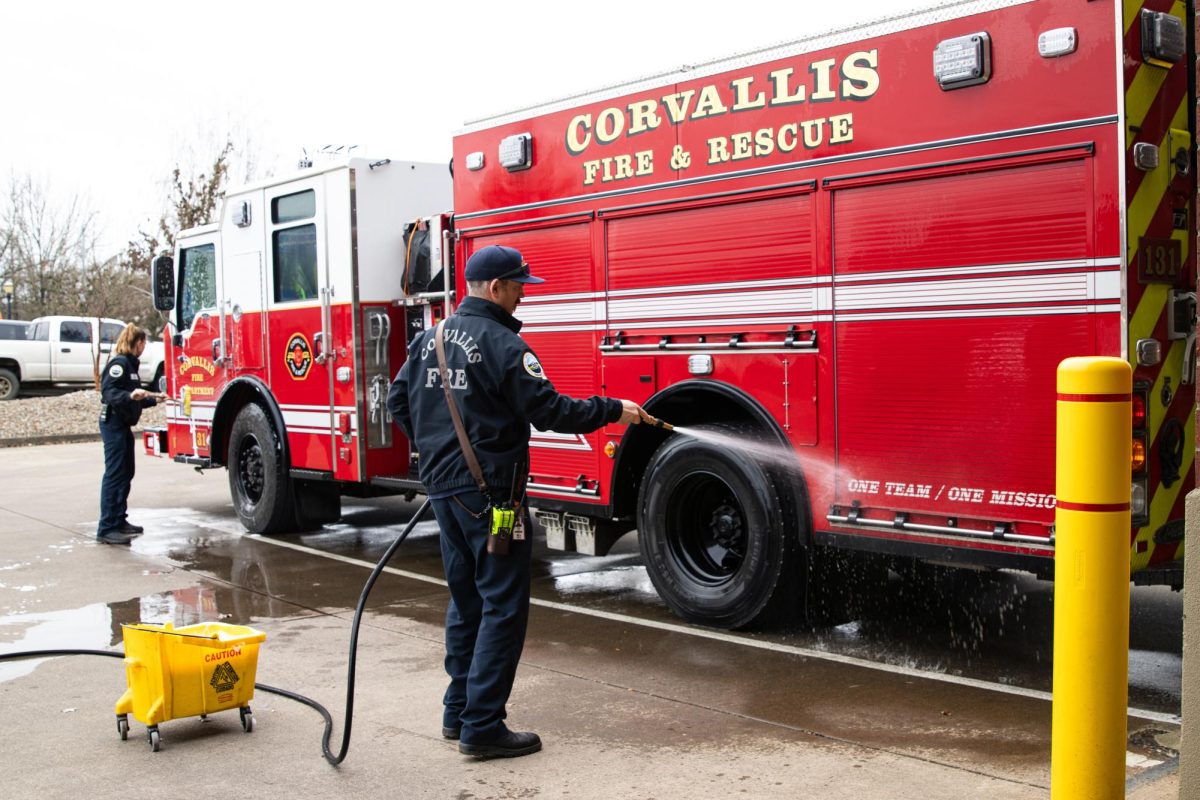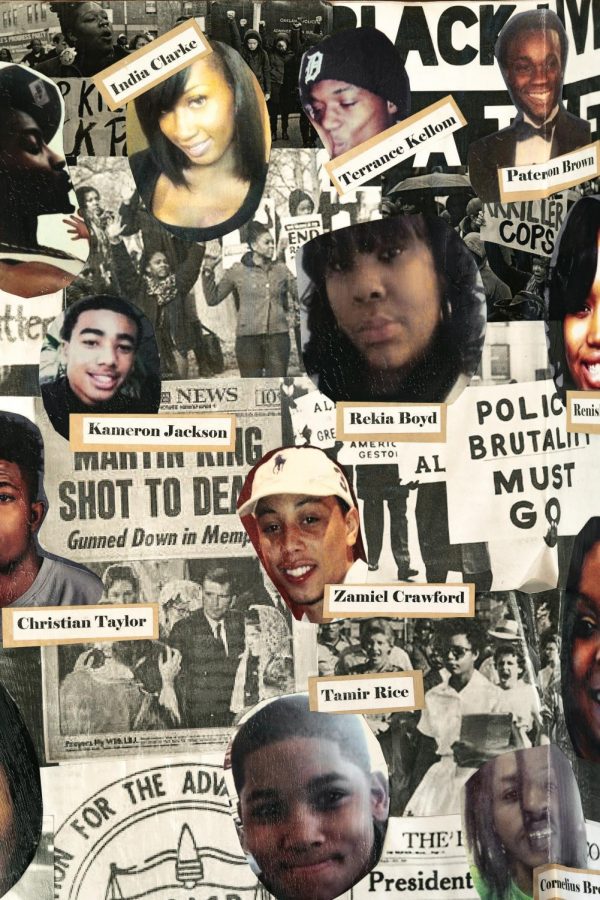Gun panel aims to ‘educate students before they vote’
February 24, 2020
Lonnie B. Harris Black Cultural Center held a panel called “Election 2020: Gun laws” which aimed to shed light on the topic of gun control in order to educate students on the history and current issues regarding gun violence and its strong impact on African American culture.
“We want to educate students before they vote,” said fourth-year geology major Amanda Carlin, who serves as partnership specialist for Community Engagement and Leadership. “It’s important to create a safe space for people to have healthy discussion in order for students to learn new factual content and create a wider perspective on societal issues,” Carlin said.
The Feb. 18th panel was designed to discuss the history of the second amendment, past and current gun laws within the U.S., and the history of African American gun restrictions, which have continually plagued our country’s history according to panelist Dwaine Plaza, Ph.D., who is a professor of sociology at OSU.
According to Plaza, the notion of gun restrictions towards African Americans began with the desire to control and prevent slaves from gaining power over their oppressors.
“Gun restrictions began within the United States with the desire to control black bodies,” Plaza said. “Plantation owners never wanted slaves to get their hands on guns because they knew they might turn against them.”
However, Plaza said even after slavery was abolished, the image of a black man handling a gun was far too much for white men to endure, such as in the case of the Black Panther movement of the 1960s, when African Americans were photographed, firearms in hand.
According to Plaza, “Gun control only becomes problematic when black people are seen with guns. It’s a culture of fear.”
Plaza attributes such fear to the everlasting misinterpretations of African Americans and the control which white men have over laws and legislations. “Unfortunately, white people get to write the narrative on how they perceive black folks,” Plaza said.
Despite such issues, some U.S. gun laws that are currently in place or pending serve protection purposes which may prove beneficial, according to Executive Director of Ceasefire Oregon and panel contributor, Penny Okamoto.
For example, the Extreme Risk Protection Order allows law enforcement, families, and household members to ask a judge to temporarily remove guns those who the judge has determined to be a risk to self or others. An [Extreme Risk Protection Order] will also temporarily prohibit a person from buying a firearm. The law was enacted in order to lower homicide and suicide rates throughout Oregon.
“When considering a gun purchase, remember that a gun in the home doubles the risk of homicide and triples the risk of suicide,” Okamoto said when discussing her concern for unlocked firearms, which could be available to children, robbers and those with possible suicidal tendencies.
“Even the [National Rifle Association] says to lock up your guns, but less than half of gun owners actually secure their firearms,” Okamoto said. “Stricter gun laws are meant to educate people and change behavior.”
Firearms are used in 67% of suicides by older adults and in 2016, 38,658 people were killed by firearms in the United States and 60% of said deaths were due to suicide.
Oregon Legislature Bill HB 4005, which is currently pending in the Oregon House, mandates the storage and reporting of lost and stolen guns, and aims to provide significant change within the state. This particular bill, if passed, aims to hold Oregon citizens liable for securing their guns and requiring them to report any missing or stolen firearms.
According to Okamoto, “HB 4005 does not have criminal penalties. The only penalties are violations which result in fines and the possibility of strict liability if the firearm is used to harm a person or property within two years.”
While Ceasefire Oregon supports safe storage laws for firearms, they hold a neutral stance on the bill, and have concerns regarding HB 4005 because it “is deeply flawed,” according to Okamoto.


















































































![Newspaper clipping from February 25, 1970 in the Daily Barometer showing an article written by Bob Allen, past Barometer Editor. This article was written to spotlight both the student body’s lack of participation with student government at the time in conjunction with their class representatives response. [It’s important to note ASOSU was not structured identically to today’s standards, likely having a president on behalf of each class work together as one entity as opposed to one president representing all classes.]](https://dailybaro.orangemedianetwork.com/wp-content/uploads/2025/03/Screenshot-2025-03-12-1.00.42-PM-e1741811160853.png)
























